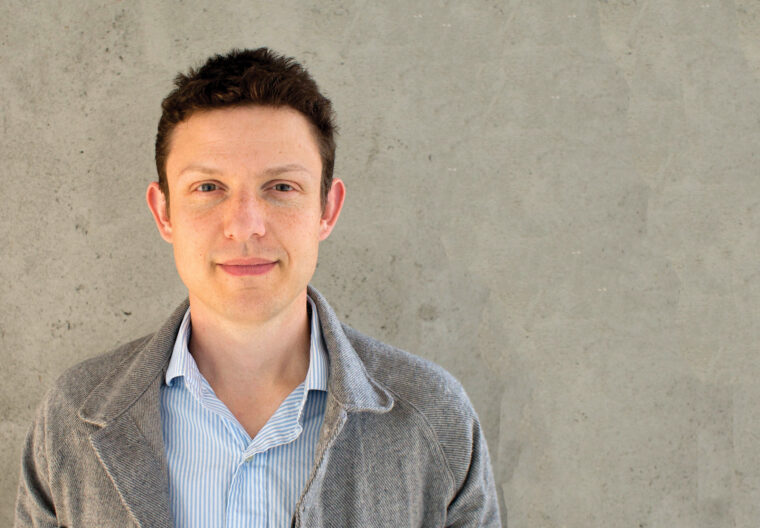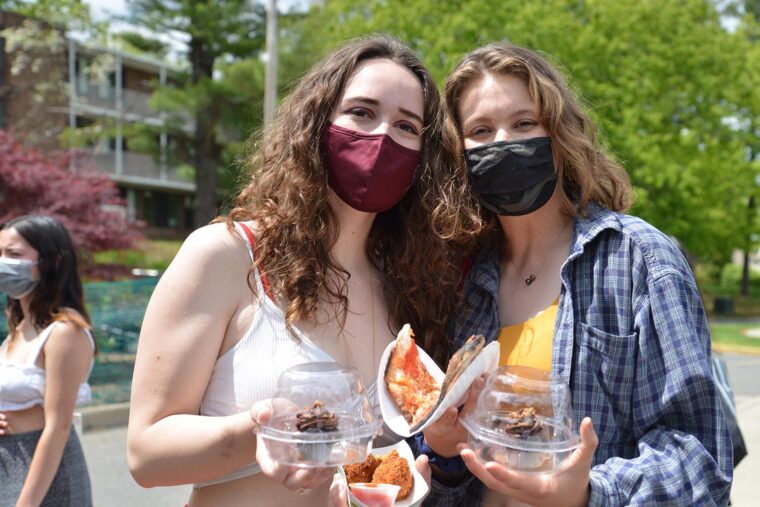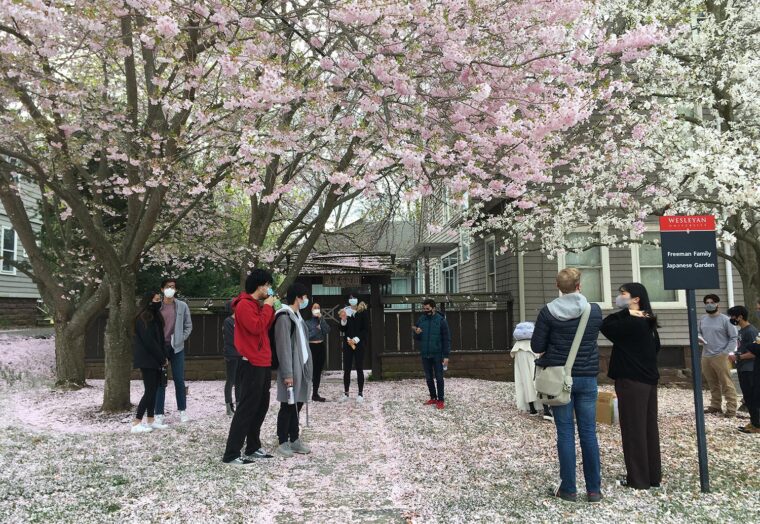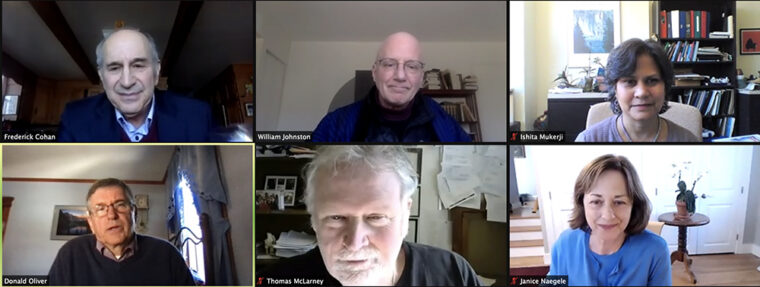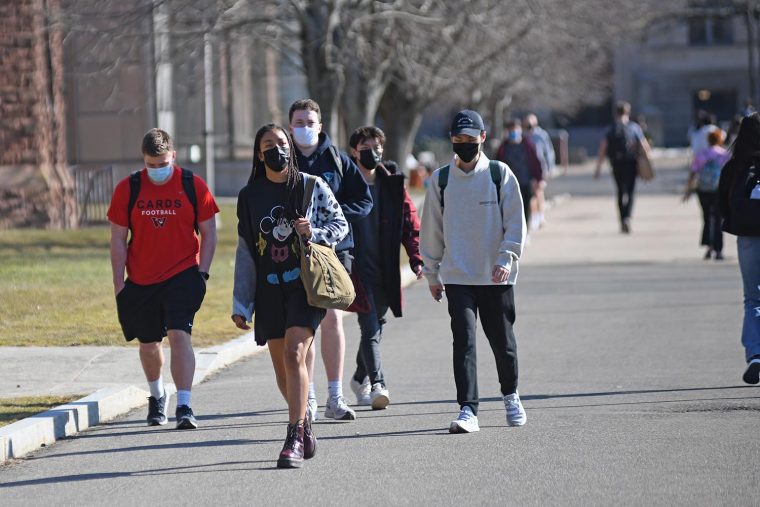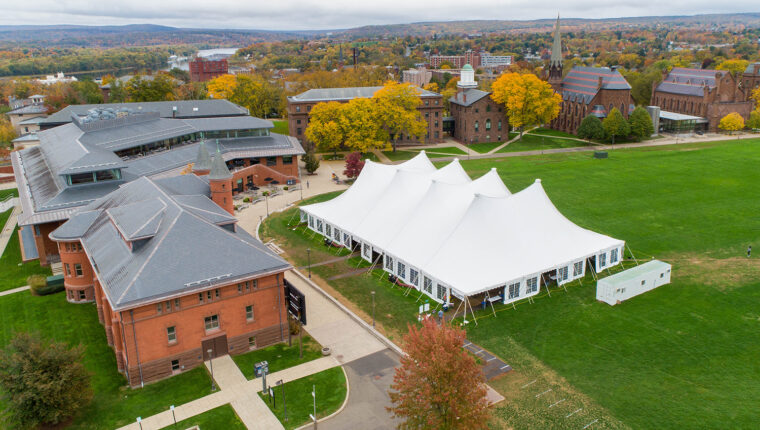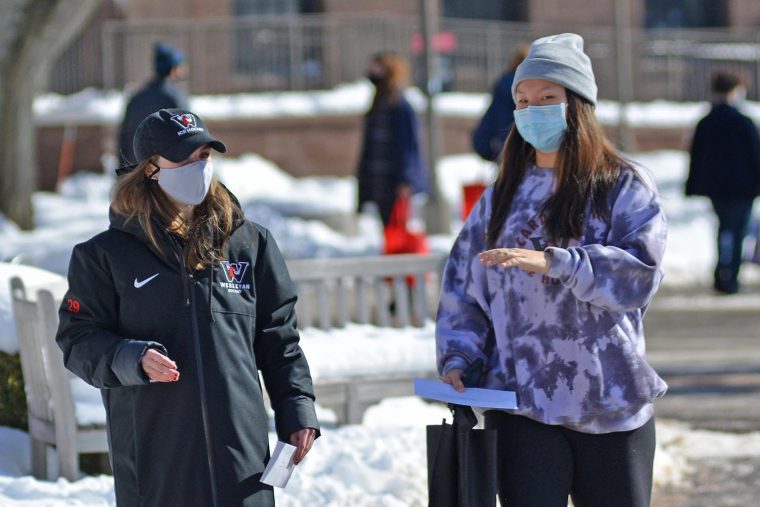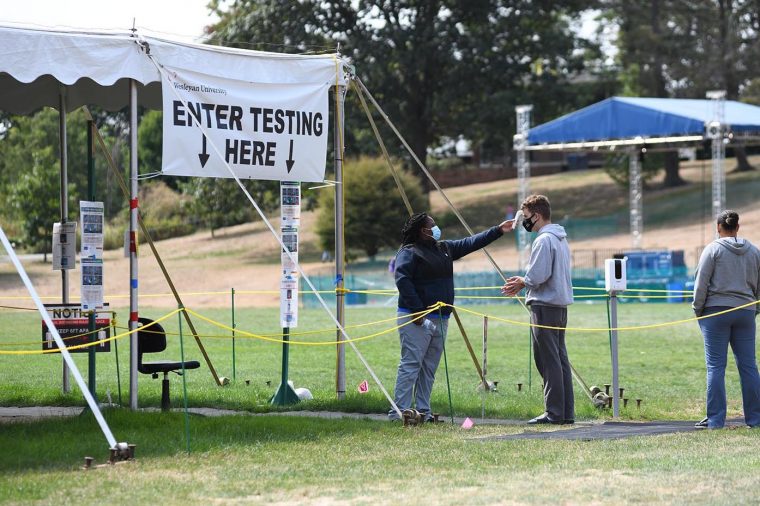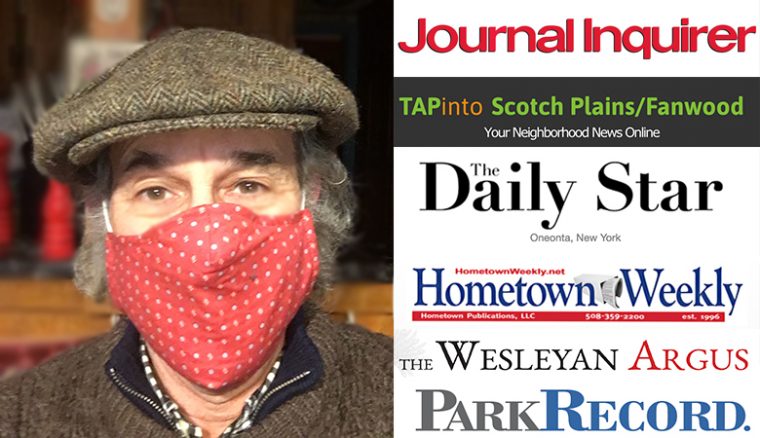Political scientist Ben Oppenheim ’02 thinks it's only a matter of time. "There's this idea circulating that pandemics are a 'once in a century' problem because the 1918 flu happened about a century before COVID-19. But that's just a random quirk," Oppenheim said. "The next one could be next week. Or next month." A College of Social Studies major at Wesleyan, Oppenheim is currently vice president of product, policy, and partnerships at Metabiota, a business providing data-driven insights to help organizations manage infectious disease risk. Through epidemiological modeling, Oppenheim and his colleagues are able to estimate the frequency and severity of…
For nearly a year and a half, the COVID-19 pandemic has undeniably affected our lives in varying magnitudes. In this timeline, we explore the evolution of the pandemic through Wesleyan's lens via public health advisories, photographs, and news stories. Jan. 22, 2020: Wesleyan's Medical Director Dr. Tom McLarney issues a public health advisory to the campus community. "As many of you know from news reports, there is a viral illness that has affected the Hubei Province (mainly in Wuhan) China," he wrote. "This virus is a novel (new) strain of the Corona virus ... At this time, there is no…
The COVID-19 pandemic has dramatically affected the Wesleyan community in a myriad of ways from student life to research to the way we teach and learn. This spring, Wesleyan's Special Collections & Archives, along with Academic Affairs, are hoping to build a historical record—and preserve for posterity—the stories, memories, messages, and creative works of the University's students, faculty, staff, and alumni. Postcards from a Pandemic Wesleyan's Special Collections & Archives has launched a "Postcards from a Pandemic" project, which aims to help future students and researchers understand what it was like to be a member of the Wesleyan community during…
On April 17, Wesleyan's Japanese community gathered outside the College of East Asian Studies to celebrate Ohanami, or “flower viewing." In early spring, three sakura—or cherry blossom trees—are blooming near the Japanese Garden. Due to the COVID-19 pandemic, the annual gathering was restricted to current students studying Japanese and CEAS faculty members. The cherry trees were donated in the mid-70s by Nobel Laureate Satoshi Omura, who received an honorary degree from Wesleyan in 1994. "The cherry blossoms’ timing was perfect," said event coordinator Naho Maruta, associate professor of the practice in East Asian Studies. "We had fallen cherry blossoms all…
(By Bill Holder '75) In this Q&A we speak with Janine Cory '91, MPH, about COVID-19 myths, vaccinations and vaccine hesitancy, pediatric transmission, health literacy, and more. Cory is the Associate Director of Communications for the CDC COVID-19 Response, Vaccine Task Force. For more information on Wesleyan's efforts dealing with COVID-19, visit the Keep Wes Safe website. Q: How did you first become interested in public health? Was there a particular experience, issue, or Wesleyan course that influenced you? What led you to focus on risk communication? A: I was actually lucky enough to be accepted into a pilot program…
On March 15, a panel of Wesleyan faculty and staff experts discussed the importance of receiving the COVID-19 vaccine during a campus-wide webinar titled "Why Get Vaccinated?" Speakers included Dr. Thomas McLarney, medical director of Davison Health Center; Donald Oliver, Daniel Ayres Professor of Biology, professor of molecular biology and biochemistry; Ishita Mukerji, Fisk Professor of Natural Science, professor of molecular biology and biochemistry; William Johnston, John E. Andrus Professor of History; and Frederick Cohan, Huffington Foundation Professor in the College of the Environment, professor of biology. Janice Naegele, Alan M. Dachs Professor of Science, professor of biology, and Dean…
On March 9, students took advantage of the 60-degree temperatures in Middletown. Students, who are in their fifth week of spring semester classes, continue to wear face coverings in all public places during the COVID-19 pandemic. For more information, visit Wesleyan's Keep Wes Safe website. (Photos by Olivia Drake) (more…)
Ninety-nine thousand and counting. That's how many times Wesleyan students, faculty, and staff have stuck, swiped, and swirled cotton swabs in their nasal cavities over the past seven months at the Wesleyan COVID-19 testing facility, with hopes for that negative result indicating no presence of SARS-CoV-2 RNA. "Implementing an effective testing program was essential to returning for in-person learning," said Associate Vice President/Dean of Students Rick Culliton, who spearheads Wesleyan's Curricular Contingency Planning Task Force (CCPTF). "Our number one priority is keeping the campus community safe. Having accurate, timely test results has been critical to identifying and containing any cases…
Wesleyan's 2021 spring semester officially began Tuesday, Feb. 9, with 2,148 students residing on campus. During the arrival period, held Feb. 5–8, approximately 1,950 students returned to campus after the winter recess. All students were required to prepare for a safe return, which included testing and quarantining before arrival. Once on campus, students must wear masks at all times in shared spaces and practice social distancing. Volunteers from Wesleyan's Campus-Community Emergency Response Team (C-CERT) assisted with welcoming students to campus, checking them in, and ensuring they had a COVID-19 test within five days of arriving on campus. (See photos here.)…
The year 2020 will undoubtedly go down in history as one of the most memorable of the modern era. From the threat and real-life toll of a global pandemic to domestic clashes over social, racial, and political injustice, 2020 was full of challenges—and the Wesleyan community met each one head-on. We banded together to keep our students and staff safe and pushed each other to show our resilience, to step up and speak out, and to use our trademark creativity to adapt and lead the way in addressing our new socially distanced and politically charged reality. In this timeline, we…
When hometown friends Michayla Robertson-Pine and Tessa Levenstein found themselves frustrated with online learning at the college level, they suspected school-aged children were also suffering in the world of online education, and that young people were actively looking for fun creative ways to engage with each other socially. That's when Wesleyan junior Robertson-Pine '22 and Amherst College junior Tessa Levenstein '22 decided to create a remote, project-based, community-oriented program with the intent of spreading joyful learning during the COVID-19 pandemic. Named Tin Can Learners, the program aims to take the load off of parents and offer engaging and energizing after-school…
As part of the BIO 173: Global Change and Infectious Disease course, Professor Fred Cohan assigns students to write an essay persuading others to prevent future and mitigate present infectious diseases. If students submit their essay to a news outlet—and it's published—Cohan awards them with extra credit. As a result of this assignment, more than 25 students have had their work published in newspapers across the United States. Many of these essays cite and applaud the University's Keep Wes Safe campaign and its COVID-19 testing protocols. Cohan, professor of biology and Huffington Foundation Professor in the College of the Environment…


